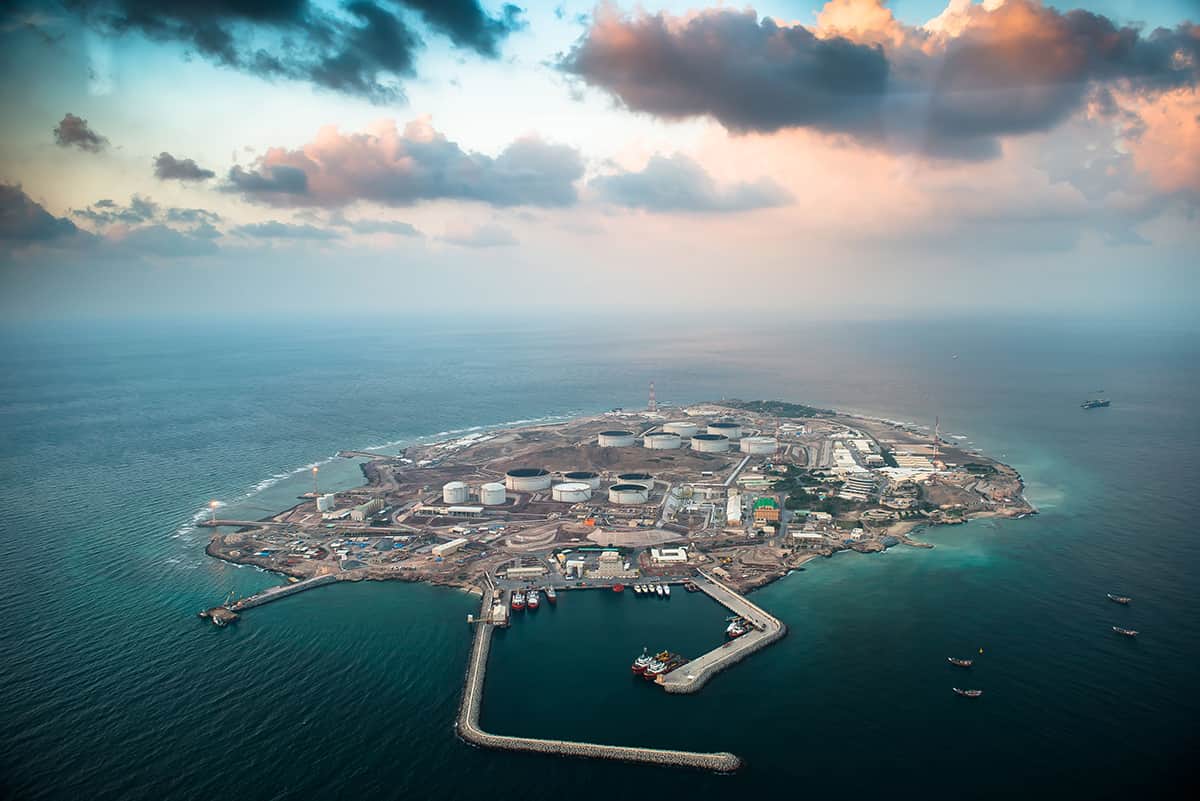Qatar is facing strong headwinds, but the tiny emirate can rely on gas reserves to cushion the shock.

Qatar’s first known case of Covid-19 appeared at the end of February. Over the following months, the country imposed one of the most severe lockdowns in the world. On May 13, as the total number of cases soared past 26,000, with 1,390 new cases per day, the government announced that citizens would face up to three years in jail and a $55,000 fine for being without a mask in public.
Restrictions scarred all sectors of the economy—especially transport, tourism and hospitality. The monarchy’s flagship carrier, Qatar Airways, for example, reported a record $1.9 billion loss for the 2019-2020 financial year.
But unlike many other countries, Qatar has the financial means to absorb the shock. Earlier this year, the government rolled out a stimulus package worth 10% of GDP, mainly liquidity injections, loans, and tax government fee postponements. It also cut budget spending by 16% and postponed several development projects. In its latest evaluation, the International Monetary Fund expects Qatar’s economy to contract 4.5% in 2020, compared to average growth of 5.7% per year since 2009.
“Qatar has the financial strength and muscle to handle the crisis,” says Ahmed Hafez, Qatar business director for international financial-market data provider Refinitiv. “The drop is actually similar to other countries in the region and worldwide.”
Despite a strong push toward economic diversification, hydrocarbons are still the backbone of the economy. Qatar is sitting on the world’s third-largest gas reserves and is the biggest exporter of liquified natural gas (LNG). This underground treasure, which has made Qataris some of the richest people in the world in per capita income, isn’t going to dry up any time soon. On the contrary, it’s expanding.
LNG Expansion
Although Qatar’s hydrocarbon revenues have dropped by 27% in 2020 due to the general slide in energy prices, the monarchy remains confident that its low-priced natural gas will continue gaining market share around the globe.
According to UK-based natural resources consulting firm Wood Mackenzie, global demand for LNG is expected to double by 2040, making it the last fossil fuel with real growth potential. Asia represents over two-thirds of the market, with countries like China, India, South Korea, Vietnam and Bangladesh looking to replace coal with cleaner energies.
To cater to the growing needs of its Asian and Western clients, Qatar is expanding production from the North Field, one of the world’s largest. Upon completion in 2027, the new facilities will enable Qatar to increase its output by 64%, from 77 to 126 million metric tons a year, the authorities claim.
“Qatar sees an opportunity because so many competitors—international oil companies [IOCs] and governments—are being hit hard with Covid-19 in terms of capital expenditure,” says Patricia Roberts, managing director of UK-based consulting firm LNG-Worldwide. “Over the years, Qatar has built a huge sovereign wealth base, which gives it the means to carry on expanding.”
Not a lot has come out publicly as to how all this will be funded and which international partners might get a piece of the cake. “You can imagine that all IOCs will want to partner up, but Qatar Petroleum is being quite shrewd and saying you really have to qualify yourself and bring something to the partnership,” says Roberts.
Upcoming deals are potentially huge. In June, Qatar Petroleum signed a $19 billion contract with South Korea to build over 100 new LNG carriers. “We have everything in place to commence the largest LNG shipbuilding program in history,” said the Qatari minister of energy, who also signed a 25-year deal in October for storage and regasification capacity in the UK.
Aside from its national resources, Qatar is also looking to have a global footprint with international partnerships with IOCs—such as Exxon Mobil in the US—or by leading exploration for new reserves in South Africa, Angola, Ivory Coast and Mexico.
Foreign Investors Sought
While being selective when it comes to partnerships, Doha is working hard to make its business environment more hospitable to foreign investors, with simpler visa policies, tax exemptions and new company-ownership laws. In October, the monarchy said it would allow foreign companies and individuals to buy real estate in several parts of the country (up until now, non-Qataris could buy only in Doha’s Pearl Island development). These efforts are paying off: In 2020, Qatar ranks 77th on the World Bank’s Ease of Doing Business list, up from 83rd in 2019.
Like several other small Gulf states, Qatar hopes to become a global trading and financial hub. The idea is to sell Doha as a base from which international companies can penetrate multiple markets in the Middle East North Africa region, Asia, and sub-Saharan Africa. This sales pitch has attracted big names such as UBS, which just signed a memorandum of understanding with Qatar’s investment promotion agency to set up significant wealth management operations in Doha.
But the country is also trying to nurture its own entrepreneurs. In 2017, Qatari financial institutions embarked on a strategic fintech plan bringing together the central bank, commercial banks, telecom operators, insurance companies and other stakeholders to foster innovation. Three years later, the first cohort of about 30 fintech startups specializing in payment solutions has made it through the initial selection process and entered the acceleration program.

“Despite Covid-19, about 700 fintech companies across many geographies sent an application,” says Henk Hoogendoorn, managing director of financial sector at the Qatar Financial Centre Authority. “We don’t say, ‘The doors are wide open. Come here and good luck.’ We pick specific segments like payments, Islamic fintech, alternative financing or insurtech, and only help bring to the market companies we truly believe have a chance of succeeding.”
And while other countries are struggling to keep funding innovation in times of looming recession, Qatar is still able to provide. “Access to capital, getting funding or equity is less of an issue here than elsewhere,” adds Hoogendoorn. “There is a lot of appetite from family offices, local investors and sovereign wealth funds to invest in financial tech.”
Strong Financial Sector
Qatar can also rely on a strong financial sector to support innovation. Banks’ total assets equal more than double Qatar’s GDP, according to Fitch Ratings; and despite the pandemic, local lenders stand strong. The financial sector is actually better shielded than it was in the 2008 financial crisis thanks to stronger capitalizations, wider use of digital solutions and the role banks play in transferring money from the government to distressed companies. “Covid-19 has been an accelerator for fintech in Qatar, with its ambition to have a cashless FIFA World Cup Qatar 2022 and to focus on financial inclusion,” comments Hoogendoorn.
Two weaknesses remain, however: high exposure to an oversupplied real estate market and heavy reliance on nonresident assets. According to recent figures published by international ratings agency Fitch, nondomestic funding (mostly Asian) accounts for about 40% of total bank assets and 25% of deposits. In the current context, there is a fear those depositors and investors might wish to cash out, thereby putting pressure on the liquidity and margins of Qatari banks.
The government is put to the test: Can it protect local banks’ asset quality in case of a liquidity crisis? The answer is probably yes. The authorities should be easily able to replace the missing deposits, as they did when the embargo imposed in 2017 pushed many Gulf Cooperation Council clients to withdraw their money.
The country’s massive sovereign wealth fund—the numbers and performance of which are not publicly disclosed—and vast assets abroad provide a shield against any type of shock. “Everyone was skeptical about how Qatar would perform; but after three years of blockade, and now a pandemic, you can rightly claim that Qatar did well, proved to be resilient and can still grow and achieve,” says Hafez.
The next big test for the tiny emirate will be the 2022 World Cup. Provided Covid-19 allows it, Qatar is convinced it can deliver.



